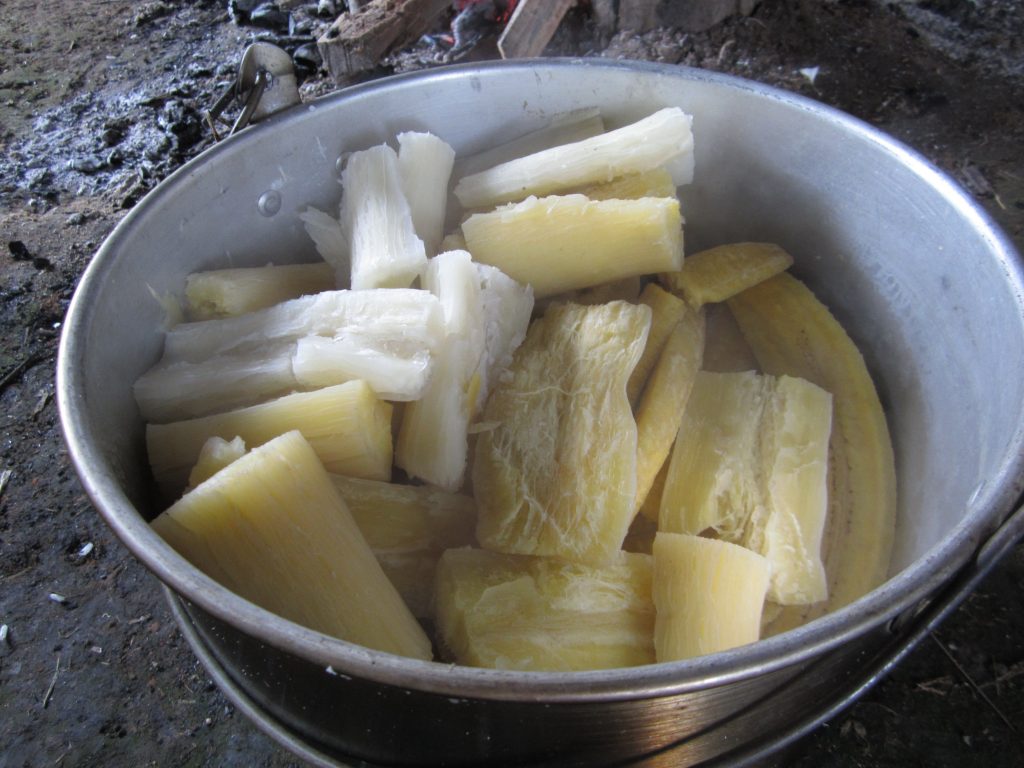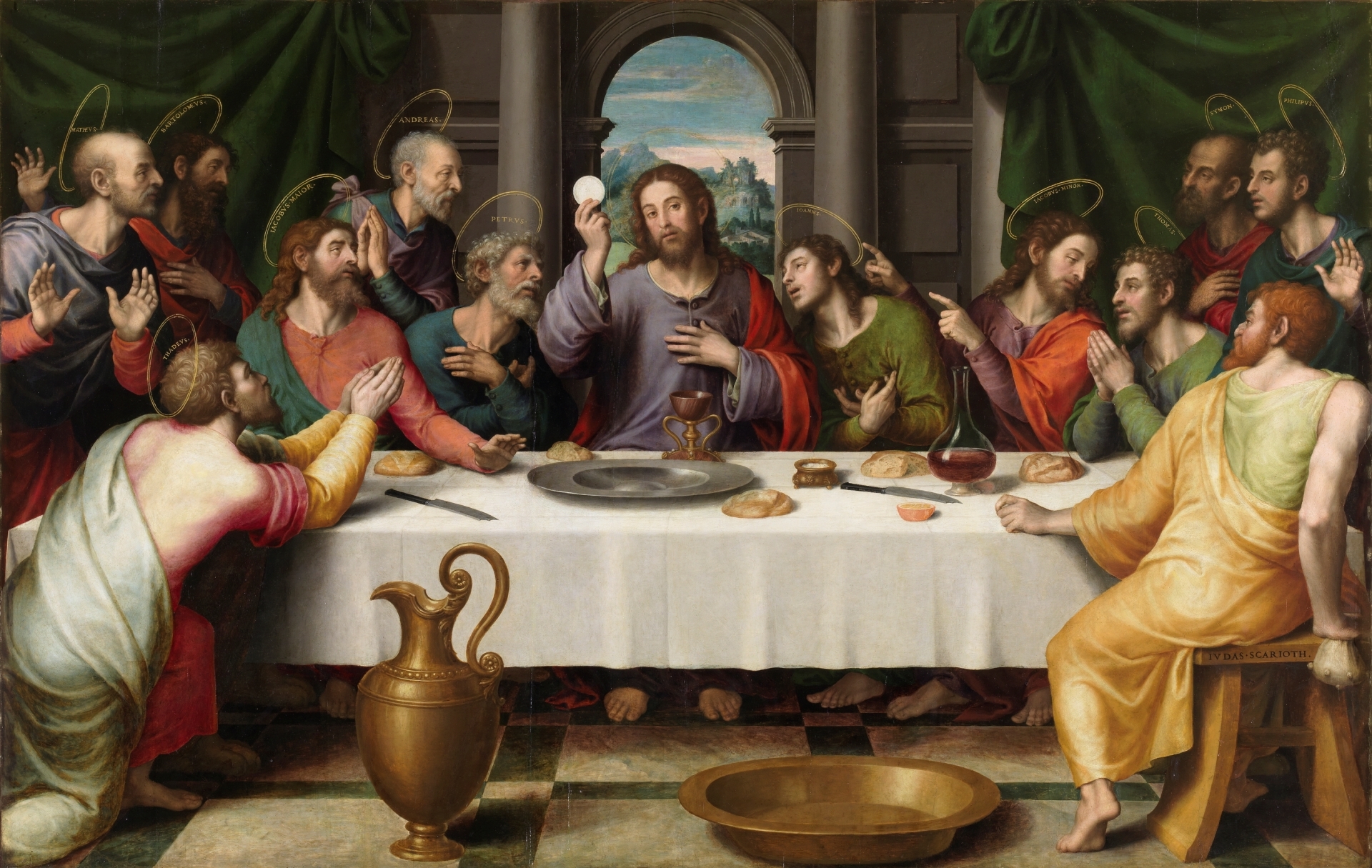Yuca-rist? Why Matter Matters
Deacon Matt, what do you think about the proposal to allow the Eucharist to be made from yuca?
I love when students ask me odd questions, because it keeps me on my toes. If you haven’t heard about this, don’t worry. Neither had I, until last week.
Providentially, the same morning a student asked me this question, I had come across an article by Monseigneur Charles Pope about this. Here’s the TLDR version: There is a synod (meeting) of bishops of the Amazon region of South America scheduled for this coming October. Among the many things the bishops will talk about, at least one priest in Brazil wants the bishops to consider allowing bread made from yuca to be used for the Eucharist. Yuca is a starchy tuber, native to the region, from which something approximating bread can be made.

The reason offered for this request is that the Amazon is hot and humid, with priests often travelling great distances to get to their missions to offer Mass. Problems sometimes arise with the wheat-bread hosts becoming soft or moldy. Plus yuca is considered the equivalent of “bread” in indigenous cultures.
This issue deals with the very nature of the Eucharist. As we have learned during our recent Credo discussions about the sacraments, all sacraments require both valid form (the words used) and valid matter (the physical substance of the sacrament). The Church has always taught that valid matter for the Eucharist is wheat bread and grape wine. To allow bread made from yuca would represent a radical departure from millennia of Church practice.
Wheat Bread
“The Lord Jesus, on the night he was handed over, took bread, and, after he had given thanks, broke it and said, “This is my body that is for you. Do this in remembrance of me.”
1 Cor 11:23-24
Jesus used bread when he offered his sacramental body to the Apostles for the very first time at the Last Supper. Today, we might be used to going to the grocery store and seeing on the shelves bread made from all kinds of alternative flours, but throughout history and certainly in Jesus’ time, bread meant wheat. Wheat imagery features very prominently in Jesus’ parables and throughout the scriptures.
While there have historically been differences in the form of bread used for the Eucharist — the Eastern Church uses leavened bread, while the Western Church uses unleavened bread — one thing that has always remained constant is the use of wheat flour. The Catechism of the Catholic Church teaches that wheat bread and grape wine are “essential signs of the sacrament” (CCC 1412).

The word “essential” here is important. It means that we are not simply dealing with a matter of custom or tradition, but with the nature of the sacrament itself.
Recently during breakfast one of my children asked me whether a priest could use a pancake for the Eucharist. I told him that assuming the pancake was made from wheat flour, it would be “valid but illicit.” Whether a sacrament is celebrated licitly or illicitly is a matter of obedience to the laws of the Church. Whether a sacrament is celebrated validly or invalidly speaks to whether or not the sacrament is truly present.
Because the matter of the sacrament is of such importance to the validity of the sacrament itself, the Church has very strict rules regarding what type of bread may licitly be used for the Eucharistic celebration. The most recent legislation regarding the Eucharist is Redemptionis Sacramentum, promulgated by Pope St. John Paul II in 2004. It states:
The bread used in the celebration of the Most Holy Eucharistic Sacrifice must be unleavened, purely of wheat, and recently made so that there is no danger of decomposition. It follows therefore that bread made from another substance, even if it is grain, or if it is mixed with another substance different from wheat to such an extent that it would not commonly be considered wheat bread, does not constitute valid matter for confecting the Sacrifice and the Eucharistic Sacrament. It is a grave abuse to introduce other substances, such as fruit or sugar or honey, into the bread for confecting the Eucharist. Hosts should obviously be made by those who are not only distinguished by their integrity, but also skilled in making them and furnished with suitable tools.
Redemptionis Sacramentum, 48
Using a pancake made from wheat flour, eggs, sugar, baking powder, salt and milk would be valid because it is a form of wheat bread. But it would be illicit because it would be against the law of the Church. Because the content of the bread touches on the question of validity, the Church is rightly very strict about this matter. Once you begin adding things other than wheat to the recipe, you start to to beg the question; what percentage of the bread actually has to be wheat for the Eucharist to be valid?
The Church doesn’t want to mess around with the Eucharist. Nor does she ever want the faithful to doubt the validity of what they receive at Mass. It’s much simpler, safer, and clear to set firm boundaries: wheat flour, water and salt only.
No Gluten-free Hosts
This is also why the Church doesn’t use gluten free hosts. You may see “low gluten” hosts offered at some parishes, which are made from wheat flour from which most of the gluten has been removed. But you will never see any truly gluten free hosts, because wheat bread can never be 100% gluten free. Gluten free hosts are made from rice flour and are not valid matter in the Catholic Church. This matter was reemphasized in a letter sent to bishops by the Vatican last year.
If the Church isn’t going to allow rice hosts for those with Celiac disease, who have an actual medical reason for not being able to consume wheat, then she certainly isn’t going to allow yuca hosts due to reasons of humidity or inculturation.
Custodial Authority
This issue presents us with a teachable moment. It’s not that the Church won’t allow these things. The Church can’t allow these things. She doesn’t have the authority. Authority implies authorship (author is the root word), and the Church is not the author of the sacraments. God is.
While the Church has authority over the sacraments in terms of how they can and should be celebrated, it is not an unlimited authority. One of the most important things the Church believes about the sacraments is that they were instituted by Christ. He created them and entrusted them to the Church. The Church is their custodian and guardian, and therefore has limited authority over them. The Church has the authority needed to protect and preserve the sacraments; she has no authority whatsoever to redefine them.
The question of proper matter deals with the very nature of the sacrament. If the Church allows yuca for the Eucharist, what next? Baptism with dirt? Why not? Wouldn’t a bit of earth sprinkled over the head of the child better symbolize descending with Christ into the tomb to rise with him from the dead? No. Water is an essential element of baptism, just as wheat bread and grape wine are essential elements of the Eucharist.
This applies to other sacraments, as well. When Pope St. John Paul II taught that priestly ordination could only be given to men in his Apostolic Letter Ordinatio Sacerdotalis, he explained that, “the Church has no authority whatsoever to confer priestly ordination on women.” It’s not that we won’t. It’s that we can’t.
This is the same reason why the Church cannot accept same-sex partnerships as sacramental marriages. Valid matter for the sacrament of matrimony is a baptized man and baptized woman. The Church doesn’t have the authority to change the matter of the sacrament, so even if every country in the world decides to legally recognize same-sex unions as marriages, they will never be recognized as sacramental marriages in the Church. It’s not that we won’t. It’s that we can’t.
Discussion off the Table
All of this is why I wasn’t surprised to read just a couple of days later that the question of allowing yuca for the Eucharist is not something the South American bishops plan to discuss at their Pan-Amazonian Synod in October. According to this article from the Catholic News Agency, it doesn’t even appear in the preparatory documents for the synod and will not be on the agenda.
These things aren’t decided by committee, or by democratic vote, or even by authoritarian decree. The Church’s job here is simple — to preserve what has been entrusted to her by Christ. And that includes the wheat bread he blessed and broke at the Last Supper.

